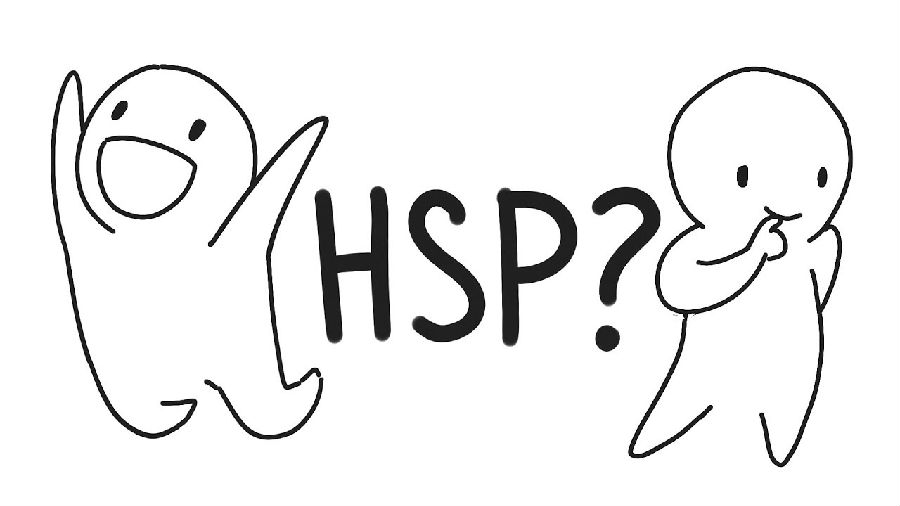(单词翻译:单击)
If you've been following the hype on all the talk about the differences between introverts and extroverts,
如果你看过谈论内向者和外向者区别的谈话,
you've probably already heard that introverts typically prefer quiet environments,
你或许听说过内向的人更喜欢安静的环境,
whereas extroverts often enjoy exploring new places and meeting new people.
而外向的人喜欢探索新地方遇见新的人。
While this is true, it only remains half truthful for those who identify as highly sensitive extroverts.
虽然这是真的,但对于那些被鉴定为高敏感外向者的人而言,这种说法只对了一半。
Wait, what? But aren't introverts usually the highly sensitive ones?
等等,什么?难道不是内向者才是高敏感的人么?
Turns out, introverts aren't the only ones who face misconceptions.
结果证明,内向者并不是唯一一个被误解的群体。
So if introverts and extroverts can both be highly sensitive individuals, are introverts still the ones more likely to identify as HSPs?
所以如果内向者和外向者都可以是高度敏感人群的话,内向者是不是仍然更有可能被鉴定为高敏感者(HSPs)呢?
Well, according to Dr. Elaine Aron, author of the Highly Sensitive Person,
《高敏感人群》的作者伊莱恩·阿伦博士指出
70% of the HSP population identify as introverts, which leaves 30 percent who are sensitive extroverts.
70%的HSP人群是内向者,剩下的30%是敏感的外向者。
Although the percentage of HSP introverts definitely outweigh HSP extroverts,
虽然HSP内向者所占比例大大超过了HSP外向者比例,
this only creates space for harmful labels and stereotypes such as the belief that extroverts only act or behave in a particular manner.
这不过是为有害标签和固化思维的产生留有余地,比如人们认为外向者会以某种方式行事。
Whether someone is an introvert or extrovert the following four criteria is used to determine high sensitivity.
不论是内向者还是外向者,都有以下四种标准可以判断是否属于高敏感人群。
1. Depth of processing. 2. Overstimulation. 3. Emotional responsiveness and empathy and 4. Sensitive to subtleties.
1. 讯息处理深度。2. 过度刺激。3. 情感反应和同理心以及4. 对细节敏感。
If you want to learn more about how highly sensitive people function check out this video after here.
如果你想了解更多关于高度敏感人的知识,请观看视频。

Although Susan Cain is known to be the catalyst for the big introvert movement
虽然是苏珊·凯恩是内向者运动的催化剂
Elaine Aaron's research on HSPs disproves her broad generalizations of what being introverted and extroverted means.
但是伊莱恩·阿伦关于HSPs的研究反驳了她对内向者和外向者定义的广泛概论。
In Cain's book Quiet, she describes extroverts as one who is sociable, gregarious,
在凯恩的《Quiet》一书中,她将外向者描述为喜欢社交、合群、
excitable, dominant, light-hearted, bold and comfortable in the spotlight.
易激动、占主导地位、无忧无虑、大胆、在聚光灯下表现自如的人。
She then describes introverts as being deep thinkers, preferring to process slowly, sensitive to stimuli,
她对内向者的描述是:深入思考者、倾向于慢慢来、对刺激敏感、
emotionally reactive, meeting time alone and so forth.
有情感反映、喜欢独处等等。
Which according to Aaron are all qualities of a highly sensitive person but as an HSP extrovert she identified with all of those traits.
这些在阿伦看来都是高敏感者的品质,但最为一名HSP外向者,她符合所有这些特质。
And if that wasn't contradicting enough, her husband, HSP introvert wasn't able to fully identify with these listed qualities.
如果这还不够矛盾的话,那么她的丈夫,一名HSP内向者,并不完全符合上述的品质。
Confused? We were too. So then what differentiates HSP introverts and extroverts from non HSP introverts and extroverts?
是不是很疑惑?我们也是。所以HSP内向者和HSP外向者与非HSP内向者和外向者有何区别呢?
According to Aaron's research, she discovered that those who score highly on the MBTI tests with NF or NT temperaments
根据阿伦的研究,她发现那些在MBTI中得高分的拥有理想主义特质或理性特质的人
usually identify as highly sensitive people. Meanwhile, fewer HSPs leaned more towards the SF and ST temperaments.
通常被鉴定为高敏感人群。同时很少有HSPs会倾向于SF和ST特质。
F and T stand for feeling and thinking but it's the differences between N and S that contributes to high sensitivity.
F和T代表感情和思考,但是N和S之间的区别才是促成高敏感特质的关键。
The N stands for intuiting while the S stands for sensing.
N代表直觉,S代表理智。
Intuitive HSP people are more interested in exploring theories and ideas,
理想主义的HSP者对探求理论和想法更感兴趣,
whereas sensing non HSP individuals care more about what's real rather than abstraction.
而理性的非HSP者更关注现实而非空想。
Hence, they enjoy the stimulation the physical world provides because it's their playground and where they make meaning.
所以他们喜欢现实世界的刺激,因为这是他们的主场,他们可以在此做有意义的事。
Meanwhile, intuitive folks don't mind escaping and living in their imaginations.
同时,理想主义者不介意躲避和生活在幻想中。
So in conclusion both introverted and extroverted HSPs enjoy alone time,
所以结论就是,内向和外向的HSPs喜欢独处时光、
less stimulating environments and prefer deep discussions over small talk.
没那么刺激的环境,也喜欢深入探讨多过聊天。
But what differentiates them is that HSP extroverts prefer to talk about their thoughts and feelings out loud rather than writing about them
但是他们的区别在于HSP外向者更喜欢大声将自己的想法和感受说出来,而不是写下来
and if they spent too much time in their heads, they'll start to grow restless and need to explore the outside world for rejuvenation.
如果过度用脑,他们就会开始变得焦躁不安,需要去探索外面的世界以恢复生机。


